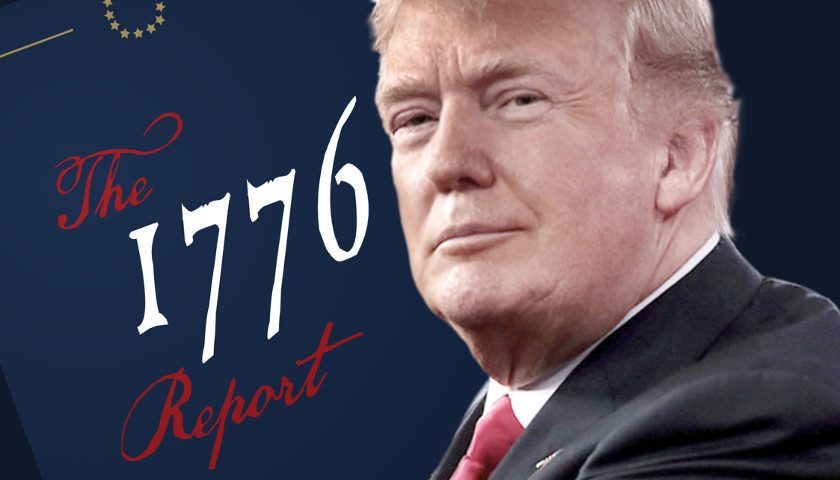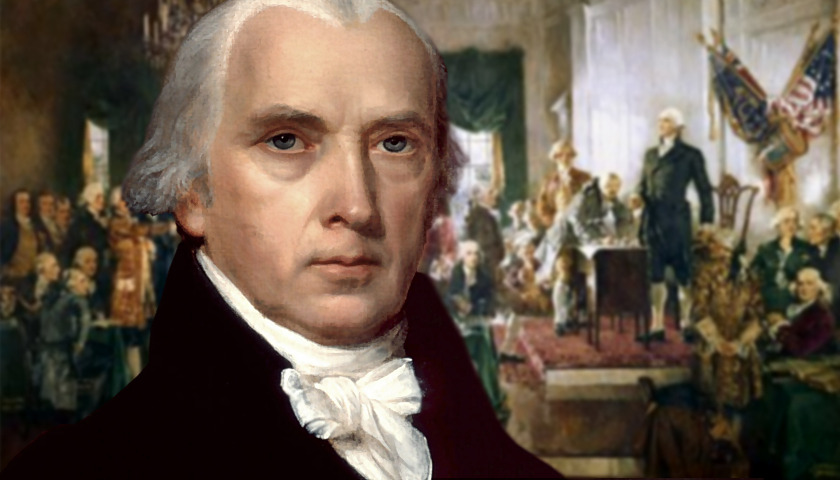Thursday morning on the Tennessee Star Report, host Michael Patrick Leahy welcomed all-star panelist Carol Swain to the studio to discuss the 1776 Commission’s disbandment and the lack of honest journalism today.
Read the full storyTag: American Founding
The 1776 Commission Releases Report on American Founding with Proposals to Unify Nation
The 1776 Commission published its report on the history and principles of the American founding on Monday. The 45-page account explored the key individuals, events, and documents informing this country’s founding. It addressed the contextual history and meaning of the Declaration of Independence and Constitution, ideologies that both historically and presently challenge American principles, and a series of proposals to restore national unity.
The appendices included the entirety of the Declaration of Independence, as well as further insight on the topics of religious faith, identity politics, and a strong civics education. In an interview with The Tennessee Star, Vice Chair Dr. Carol Swain explained that the report focuses on the virtues and ideals of this country that unite and benefit American citizens.
Read the full storyPresident Trump Names Dr. Carol Swain Vice Chairman of 1776 Commission
President Donald Trump announced the appointees for the 1776 Commission on Friday, an advisory group to the President on America’s founding principles. The 1776 Commission was formed last month, one day before the election, for the purpose of restoring an accurate understanding of the nation’s founding and history.
The commission will ensure compliance with the celebration of Constitution Day as required by law for all federally-funded educational institutions, and ensure that the departments of education, defense, and state prioritize federal resources in support of the American founding. The commission’s duties also include producing a report on the country’s core, founding principles and their perennial application in the Union; advising and aiding the President and the Semiquincentennial Commission on the 250th anniversary celebration of America’s founding; developing and implementing an award for students accurately versed in the founding; and generally advising or supporting agencies, public initiatives, and public knowledge as they pertain to the American founding.
Read the full storyCommentary: The American Founding’s High-Minded Purposes
by Edward J. Erler James Madison is justly celebrated for his frequently stated opinion that “all power in just and free Government is derived from compact.” But Madison’s view is not endorsed by all purported champions of the founders. A recent article, “Our Unwritten Constitution: Orestes Brownson and the Foundation of American Liberty,” published as part of the RealClearPolicy series on the American Project and co-authored by Richard M. Reinsch II and the late Peter Augustine Lawler, argues that Madison is utterly mistaken in his claim. In fact, the authors claim that reliance on “Lockean contract theory” produced a constitution that was “devised solely in the interest of the rights of individuals” and was “based on the unrealistic abstraction of unrelated autonomous individuals.” Lawler and Reinsch claim that autonomous individuals – that is, human beings abstracted from real life – cannot provide the appropriate material for political life. They are not “parents, creatures, [or] even citizens. Lockean thought, thus, isn’t political enough to be the foundation of government, and it isn’t relational enough to articulate properly the limits of governments or the roles of family and organized religion.” Reinsch and Lawler rely heavily on Orestes Brownson’s criticism of Locke’s influence on the…
Read the full story



